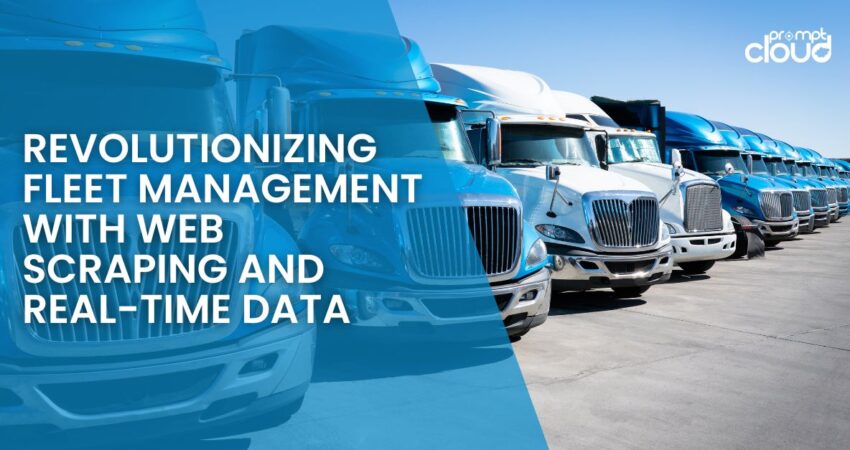
Fleet management has experienced a significant transformation with the rapid advancement of technology. As businesses increasingly rely on transportation to deliver goods and services efficiently, the integration of innovative solutions has become essential. Fleet managers today must adapt to a dynamic environment where technology plays a pivotal role in optimizing operations. From tracking vehicles to enhancing safety and compliance, technological developments have reshaped how fleets are managed. This ongoing evolution not only improves operational efficiency but also contributes to cost savings and enhanced customer satisfaction.
Advancements in Vehicle Tracking Systems
One of the most significant advancements in fleet management technology is the enhancement of vehicle tracking systems. Modern GPS technology enables fleet managers to monitor the real-time location of their vehicles, providing invaluable insights into route efficiency. This capability reduces operational costs significantly by optimizing routes and minimizing fuel consumption. Fleet managers can analyze historical data to identify patterns and adapt strategies accordingly. Moreover, many tracking systems now integrate with telematics to gather additional data, such as vehicle speed and driver behavior. This integration allows managers to set benchmarks for performance and address potential issues proactively. As a result, companies enjoy increased accountability and improved customer service through timely deliveries. By leveraging these advances, businesses can implement strategies that lead to higher productivity and reduced downtime.
The Role of Telematics in Fleet Performance
Telematics is another critical component of modern fleet management. This technology combines telecommunications and monitoring systems to deliver valuable insights about vehicle performance. Managers can access data points on fuel consumption, engine performance, and maintenance needs, facilitating informed decision-making. Predictive maintenance is a growing trend within telematics; managing maintenance schedules helps prevent unexpected breakdowns. As you can see on this website, there are comprehensive resources and insights online where you can explore more about telematics and its applications in fleet management. By identifying potential malfunctions before they become issues, fleets can operate smoothly and maintain service reliability. Using telematics, fleet managers can also track driver performance, encouraging safer driving habits through real-time feedback. It’s increasingly important for organizations to prioritize safety and efficiency, as both directly influence their bottom line. Integrating telematics solutions can streamline fleet operations and foster a culture of continuous improvement.
Enhanced Safety Measures
Safety has always been a priority in fleet management, and technology has revolutionized how fleets approach this critical issue. With the emergence of advanced driver-assistance systems (ADAS), fleets can now enhance vehicle safety significantly. These systems utilize sensors and cameras to monitor vehicles, providing alerts for potential collisions and assisting with safe maneuvering. By reducing the chances of accidents, fleets can lower insurance costs and protect their drivers. Additionally, driver training programs can now incorporate simulated environments, allowing drivers to practice scenarios in a controlled setting. The adoption of dash cameras has also increased, providing footage that can be invaluable during incidents, helping to clarify liability and enhance accountability. Companies that invest in these safety technologies not only protect their assets but also foster a culture of safety awareness among employees. Implementing safety measures driven by technology can lead to a substantial reduction in accident rates.
The Impact of Automation on Fleet Management
Automation is making waves across various sectors, and fleet management is no exception. From automated dispatch systems to autonomous vehicles, the role of automation is gradually transforming how fleets operate. Automated dispatch minimizes human error, allowing for faster response times and improved resource allocation. Moreover, the advent of autonomous vehicles presents unprecedented opportunities for cost savings and efficiency. Though full automation is still on the horizon, many companies adopt automating repetitive tasks to free staff for more strategic roles. Such automation can also reduce labor costs while improving overall productivity. Fleet management software is becoming increasingly capable of automating routine tasks such as scheduling and compliance tracking. The success of these automated solutions often hinges on the seamless integration of technology across all fleet management functions, which can elevate the potential for operational success significantly.
Data Analytics for Strategic Decision-Making
The proliferation of data analytics tools has greatly enhanced fleet management efficacy. Fleet managers can now leverage data to identify trends and make informed decisions about resource allocation and operational adjustments. Analysis of historical route data can reveal insights into seasonality, allowing managers to anticipate demand fluctuations. Comprehensive data analysis also enables firms to measure key performance indicators (KPIs) and make adjustments based on real-time feedback. With predictive analytics, fleet managers can foresee future trends, improving their ability to strategize and plan effectively. Additionally, integrating customer feedback data is becoming increasingly popular; understanding customer needs allows fleets to tailor their services accordingly. The synergy between technology and data analytics is driving fleet management into a new era of strategic decision-making that maximizes efficiency.
Sustainability and Environmental Impact
The growing awareness of environmental issues has pressed fleet management to adopt more sustainable practices. Technological innovations have made it easier for fleets to monitor their carbon footprint and implement eco-friendly practices. Vehicles equipped with telematics can be analyzed for fuel efficiency, allowing companies to pinpoint areas for improvement. Switching to electric or hybrid vehicles is another significant step many fleets are taking in reducing emissions. Furthermore, employing route optimization not only saves fuel but also lowers the overall greenhouse gas emissions associated with transportation. Such sustainable practices not only meet regulatory requirements but also enhance a company’s brand image and can lead to increased customer loyalty. Companies that embrace sustainability demonstrate a commitment to responsible business practices that can yield long-term benefits.
The Future of Fleet Management Technology
The future of fleet management technology is promising, with emerging innovations that are set to redefine the landscape. Trends such as artificial intelligence (AI) and machine learning are paving the way for smarter fleet management solutions. AI can assist in predicting vehicle maintenance needs, optimizing route planning, and enhancing driver safety. Additionally, the rise of connected vehicles will only enhance the data available to operators, leading to even more efficient decision-making processes. As technology continues to evolve, fleet managers must stay attuned to new developments to remain competitive. Understanding these trends will enable them to harness new tools effectively and implement strategies that enhance fleet performance. In an increasingly technology-driven world, adaptability will be critical for those involved in fleet management.
The integration of technology into fleet management has resulted in a monumental shift that enhances operational efficiency, safety, and sustainability. Fleet managers today have more tools at their disposal than ever before, enabling them to operate smarter and respond better to emerging challenges. By embracing advancements in vehicle tracking systems, telematics, automation, and data analytics, companies can position themselves for lasting success. Keeping pace with technological innovations is vital as the landscape continues to evolve, setting the stage for future advancements that will further revolutionize fleet management.




















